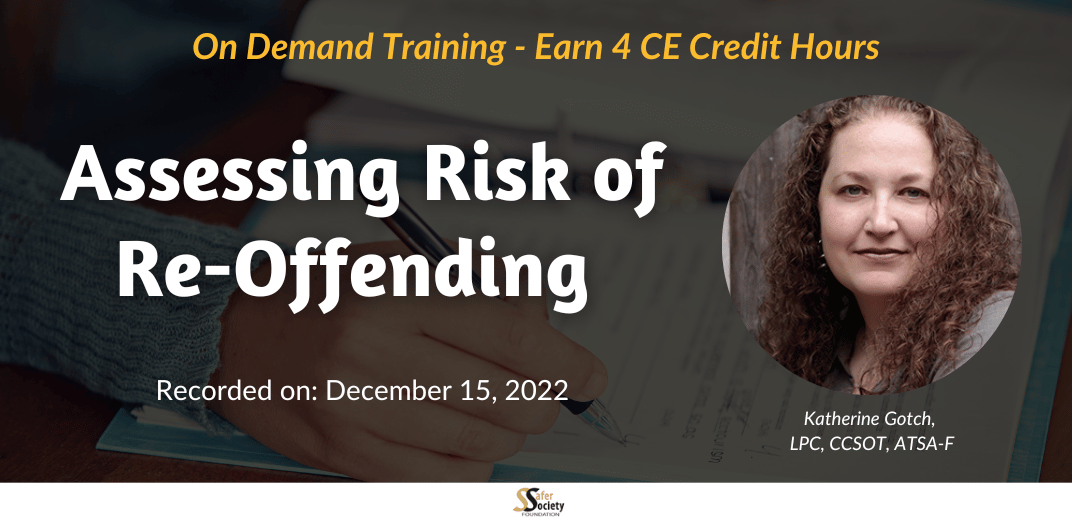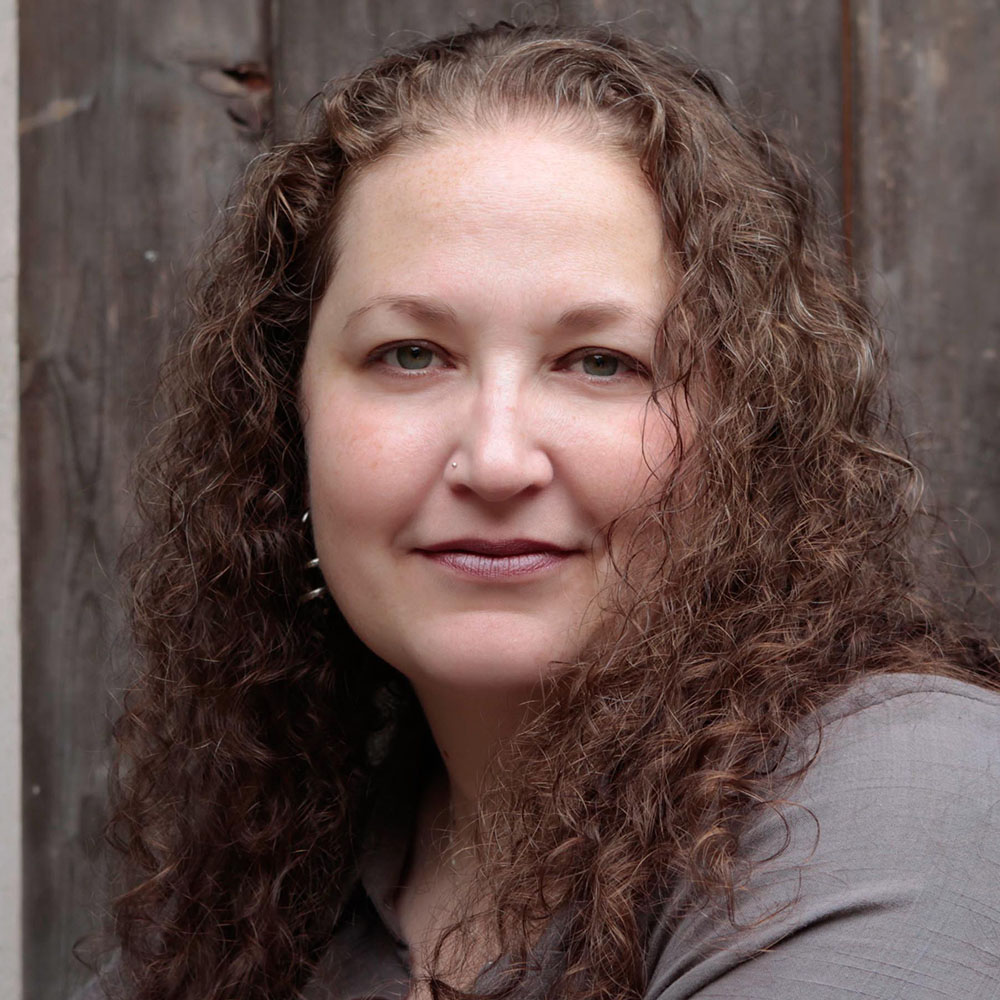
Assessing Risk of Re-Offending
Already purchased an On Demand training?
Click here to access your Safer Society On-Demand Training Center account.
This training provides an overview of risk assessment for general, violent, and sexual re-offense by adults. It will be of interest to those who are newer to the field as well as those who wish to develop their existing skills further.
Over the past 30 years, research has led to the identification of empirically derived risk factors associated with general criminality, violence, and sexual offense recidivism and this, in turn, has resulted in the development of specialized risk assessment tools. Risk assessment plays an integral role within forensic mental health and correctional practice as it is one of the most important and frequent tasks required of evaluators, clinicians, and correctional professionals.
This session provides a comprehensive overview of the history and development of contemporary risk assessment, as well as the different types of risk assessment tools and the core components of the risk assessment process. The roles of psychopathy, childhood adversity/trauma, and protective factors as related to risk assessment will also be discussed. Utilization of risk assessment with special populations (e.g., females, IDD) is examined, and practical strategies for applying risk assessment within the case/treatment/risk management planning process are provided.
Training Topics:
1) History & development of contemporary risk assessment methods
2) Types of risk assessment
3) Identification of risk & protective factors
4) Examples of empirically validated tools
5) Core components of risk assessment
6) Conducting risk assessment
7) Applying risk assessment to practice
1) Describe the different approaches to risk assessment and varying types of risk assessment tools.
2) Explain the bio-psycho-social model of offending and the importance of assessing psychopathy within the risk assessment process.
3) Identify how adverse childhood experiences, trauma, and protective factors affect risk assessment.
4) Apply risk assessment protocols appropriately to special populations (for example, females and people with intellectual disabilities).
5) Integrate risk assessment within case/treatment/risk management plans
Audience
This training is for professionals working with people who have perpetrated abuse. Professionals who will benefit from this training include social workers, psychologists, clinical counselors, and interested paraprofessionals
Content Level
Disclosure
Continuing Education Approval
American Psychological Association (APA)
Safer Society Foundation, Inc. is approved by the American Psychological Association (APA) to sponsor continuing education for psychologists. Safer Society Foundation, Inc. maintains responsibility for this program and its content.
Association of Social Work Boards (ASWB)
Assessing Risk of Re-Offending, Course #5331, is approved by the Association of Social Work Boards (ASWB) Approved Continuing Education (ACE) program to be offered by Safer Society Foundation, Inc. as an individual course. Individual courses, not providers, are approved at the course level. State and provincial regulatory boards have the final authority to determine whether an individual course may be accepted for continuing education credit. ACE course approval period: 10/24/2023 – 10/24/2025. Social workers completing this course receive 4 Clinical continuing education credits.
Who's Presenting

Katie Gotch, LPC, CCSOT, ATSA-F
Katie Gotch is a Safer Society Collaborator. She has worked in the field of sexual abuse prevention for well over twenty years as a clinician, evaluator, trainer, educator, and in the development of evidence-informed public policy. Katie currently maintains a private practice, Integrated Clinical & Correctional Services, which provides specialized clinical and consultation services related to individuals with sexual behavior problems and other forms of abusive/violent behavior. She frequently provides training to correctional agencies, treatment providers, policy makers, and other community partners on sexual abuse specific assessment, management and treatment; static and dynamic risk; public policy; public/media engagement; and related topics. She is a certified Static-99R/STABLE & ACUTE-2007 trainer and a local ODARA trainer. Katie has a long history of public policy and board involvement; She has served as the Public Policy Executive Board Member for ATSA, as a Board Member for NPEIV, and as the Policy Advisor for OATSA.
